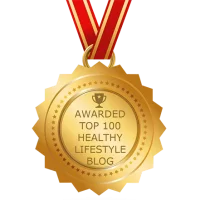Home » Naturopathic Approach to Managing Atrial Fibrillation Naturally

Naturopathic Approach to Managing Atrial Fibrillation
Manage atrial fibrillation treatments the natural way with a naturopathic approach cardiologist specializing in afib. Explore holistic treatments for Afib here! Why consider natural remedies for Afib treatments? One of the common questions from our patients is, “I don’t want to take drugs. What are my alternative natural remedies for atrial fibrillation?” We also receive similar questions from caregivers and spouses of Afib patients. As a holistic cardiology practice, we are happy to address the options and questions, for both conventional and natural treatment options for atrial fibrillation medication or heart afib treatment.
What Is Atrial Fibrillation?
Atrial Fibrillation, also known as Afib, is a common cardiac arrhythmia that increases the risk of forming clots and subsequent stroke. In AFib patients, the normal beating in the upper chambers of the heart is irregular, and blood doesn’t flow as well as it should from the atria to the lower chambers of the heart. It is estimated that between 2.7 million and 6.1 million people in the United States have AFib. AFib may happen in brief episodes, or it may be a permanent condition. Find cardiologist specializing in heart AFIB treatment, atrial fibrillation treatments, atrial fibrillation medication, paroxysmal atrial fibrillation in Burbank, Los Angeles, USA.
Curing Arrhythmia Naturally
Arrhythmia, characterized by irregular heartbeats, can be challenging to manage. While conventional treatments like medications and medical procedures are often recommended, many individuals seek alternative or complementary approaches to support their heart health. Here are some natural strategies that may help in managing and even potentially alleviating arrhythmia:
Healthy Diet: Adopting a heart-healthy diet can play a significant role in managing arrhythmia. Focus on consuming whole foods rich in nutrients, including fruits, vegetables, whole grains, lean proteins, and healthy fats. Limiting processed foods, refined sugars, and excessive caffeine and alcohol intake may also help stabilize heart rhythms.
Regular Exercise: Engaging in regular physical activity is essential for cardiovascular health. Aim for at least 30 minutes of moderate-intensity exercise most days of the week. Walking, swimming, cycling, and yoga can improve heart function, reduce stress, and promote overall well-being.
Stress Management: Chronic stress can exacerbate arrhythmia symptoms. Incorporating stress-reducing techniques such as deep breathing exercises, meditation, mindfulness, and progressive muscle relaxation into your daily routine can help calm the nervous system and support heart health.
Supplements: Certain supplements may support heart health and help regulate heart rhythms. Talk to your healthcare provider before starting any supplements, but options like magnesium, coenzyme Q10, fish oil, and potassium may be beneficial for some individuals with arrhythmia.
Acupuncture: Acupuncture, a traditional Chinese medicine practice, involves the insertion of thin needles into specific points on the body to promote balance and healing. Some studies suggest that acupuncture may help regulate heart rhythms and improve overall cardiovascular function.
Herbal Remedies: Certain herbs, such as hawthorn, garlic, turmeric, and ginger, have been used for centuries to support heart health. While research on the effectiveness of herbal remedies for arrhythmia is limited, some individuals find relief from symptoms with these natural approaches.
Hydration: Dehydration can contribute to electrolyte imbalances and exacerbate arrhythmia. Stay adequately hydrated by drinking plenty of water throughout the day, especially if you’re engaging in physical activity or hot weather.
Sleep: Quality sleep is essential for heart health and overall well-being. Aim for seven to nine hours of uninterrupted sleep each night and establish a relaxing bedtime routine to promote restful sleep.
It’s important to note that while these natural approaches may help manage arrhythmia symptoms for some individuals, they may not be suitable for everyone. Always consult with a healthcare professional before making any significant changes to your lifestyle or starting new supplements or therapies, especially if you have underlying health conditions or are taking medications. A holistic approach to heart health that combines conventional and complementary therapies may offer the most comprehensive care for managing arrhythmia naturally.
What Are The Conventional Afib Treatments?
To effectively prevent stroke, the primary goals of conventional paroxysmal atrial fibrillation treatment are to prevent or lower the risk of clot formation with blood thinning medication, decrease the rate at which the heart is beating and convert the rhythm of the heart to avoid damage to the heart muscle. This is typically accomplished with several atrial fibrillation medications and/or surgery. Our atrial fibrillation specialist or doctors specializing in atrial fibrillation may prescribe medicine/medications for atrial fibrillation. Some of the natural remedies for atrial fibrillation are the following :
- Medication to control the heart’s rhythm
- Medication to slow down your heart rate
- Blood-thinning medicine to prevent blood clots
- Catheter ablation surgery
- Medications to control atrial fibrillation symptoms diagnosis
However, under the supervision of an atrial fibrillation specialist doctor knowledgeable in both conventional and alternative heart Afib treatment, you may be able to accomplish the same goals as pharmaceuticals with more natural means.
Are There Natural Remedies for Afib fibrillation?
The following supplements have been researched and have been shown to support healthy cardiovascular function. Natural remedies for Afib or Atrial fibrillation include:

Fish Oil for AFib
One of the best natural remedies for atrial fibrillation is fish oil. Fish oil has several benefits for improving cardiovascular health. It is known for reducing inflammation, stabilizing plaque on arterial walls, reducing triglycerides, and decreasing blood viscosity or stickiness as well as increasing fibrinolytic activity, which is beneficial for preventing clots. Numerous studies have also shown an inverse correlation between the amount of omega-3 fatty acid blood levels and sudden cardiac death. You can increase omega-3 fatty acid consumption through diet by eating fatty fish such as salmon, sardines, tuna, or mackerel or through supplementation.

Magnesium for AFib
Magnesium is also the best natural remedies for atrial fibrillation treatments and heart Afib treatment. Magnesium has a number of benefits, some of which may extend to supporting cardiovascular health. It may prevent atrial fibrillation from occurring as well as improve Heart Rate Variability. Heart rate variability (HRV) is a measure of cardiac function and nervous system activity, a high HRV shows a balance between the parasympathetic and sympathetic branches in the nervous system, which is crucial for good cardiac function. Supplementing with magnesium has been shown to improve vagal tone and improvement in stress response and resiliency.

Choline for AFib
Choline is an essential nutrient and natural remedies for atrial fibrillation treatments, meaning that we must get it from food or supplementation. It is involved in many physiologic processes including metabolism, methylation, and neurotransmitter synthesis, and provides structural components for cell membranes. Deficiency has been associated with neural tube defects as well as nonalcoholic fatty liver disease. Choline is the precursor to acetylcholine, a neurotransmitter that is crucial to many activities in the body, including cardiovascular activity. Choline is also important in lowering homocysteine levels in the blood. Elevated levels of homocysteine have been associated with an increase in stroke risk, inflammation, and myocardial infarction. It is recommended that adults get between 425-550 mg/day of choline through food and supplementation. Choline is found in egg yolks, meat, cruciferous vegetables, and dairy5.
Managing Atrial Fibrillation at Holistic Health Heart Center
While atrial fib medications are appropriate in many cases, they are not without side effects. Many patients come to the Healing Heart Center looking for a more holistic approach to managing the cardiovascular care of Afib symptoms and treatment. At the Holistic Healing Heart Center, atrial fibrillation specialist, the providers are well-versed in both conventional and alternative options for atrial fibrillation treatments and can discuss you your best options. Under the careful supervision of a cardiologist specializing in AFIB treatment, the goals of medication may be able to be accomplished with natural supplements including clot and stroke prevention and slowing the heart rate.
Dr. Cynthia Thaik will perform a thorough cardiovascular assessment, looking at cardiac function, ruling out structural damage, checking paroxysmal atrial fibrillation symptoms, assessing the adverse effects of hypertension and dietary toxicity (alcohol, caffeine, excessive inflammatory foods), checking for vascular inflammation and endothelial dysfunction, and exploring the impact of stress on arterial tone and the autonomic nervous system regulation of the cardiovascular system.
Subsequently, our provider will assess the patient’s dietary and nutrient history, hormonal balance and adrenal status and make appropriate dietary, nutritional and supplemental recommendations. If necessary, functional laboratory testing, such as food sensitivity assessment, thyroid and sex hormonal levels, and adrenal function testing will be ordered. The patient will have an option to receive individual coaching from a mindfulness instructor. Together, this integrative team approach to Afib will provide the patient with the best opportunity to address the root causes underlying the atrial fibrillation and hopefully restore normal sinus rhythm. As with all health conditions, our goal is to help Afib patients transition from symptoms and disease care to optimal health and wellness – true preventive cardiology.
If you have been diagnosed with Atrial Fibrillation and are looking for natural treatments, we invite you to contact us today for a consultation.
References:
1. Weitz D, Weintraub H, Fisher E, Schwartzbard A. Fish Oil for the Treatment of Cardiovascular Disease. Cardiol Rev. Sept-Oct. 2010;18(5):258-263.
2.Dietary supplementation with n-3 polyunsaturated fatty acids and vitamin E after myocardial infarction: results of the GISSI-Prevenzione trial. Lancet. 1999 Aug 7; 354(9177):447-55.
3. Iseri LT: Role of magnesium in cardiac tachyarrhythmias, Am J Cardiol Jun 19;65(23):47K-50K, 1990.
4.Wienecke E., Nolden, C. Long-term HRV analysis shows stress reduction by magnesium intake, MMW Fortschr Med. 2016 Dec; 158(6):12-16.
5.Choline. Linus Pauling Institute. https://lpi.oregonstate.edu/mic/other-nutrients/choline. Published January 27, 2020. Accessed February 9, 2020.



